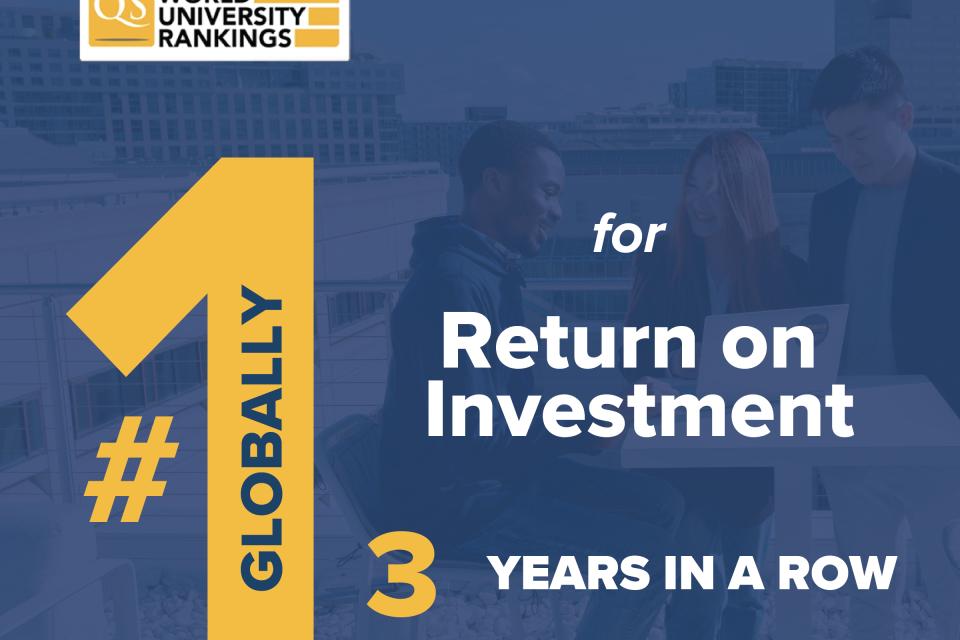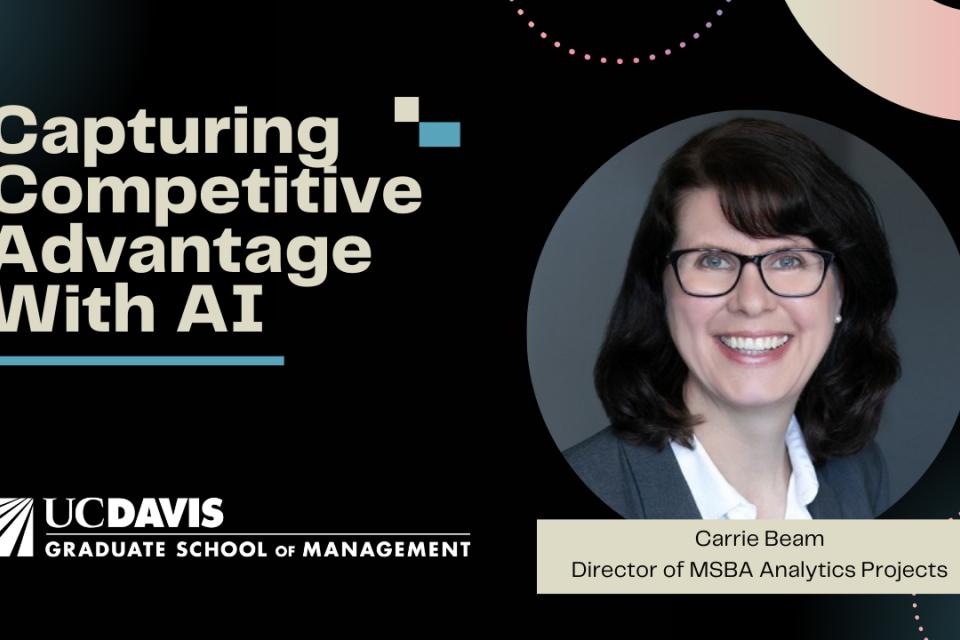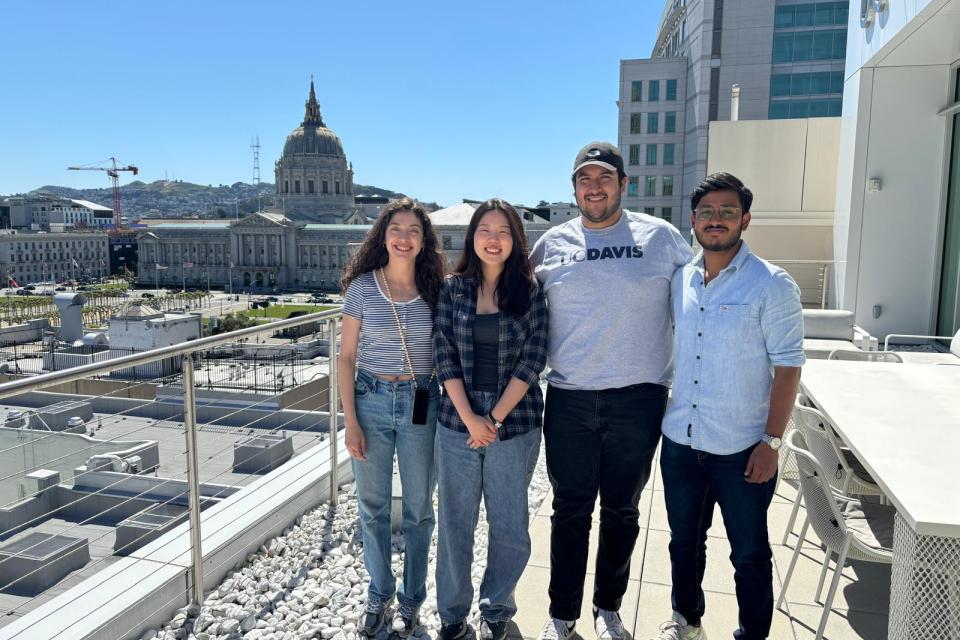Meet Carrie Beam: Academic Director of the UC Davis MSBA Program
Sharing insights into industry trends, employers with “chocolate cake demand”
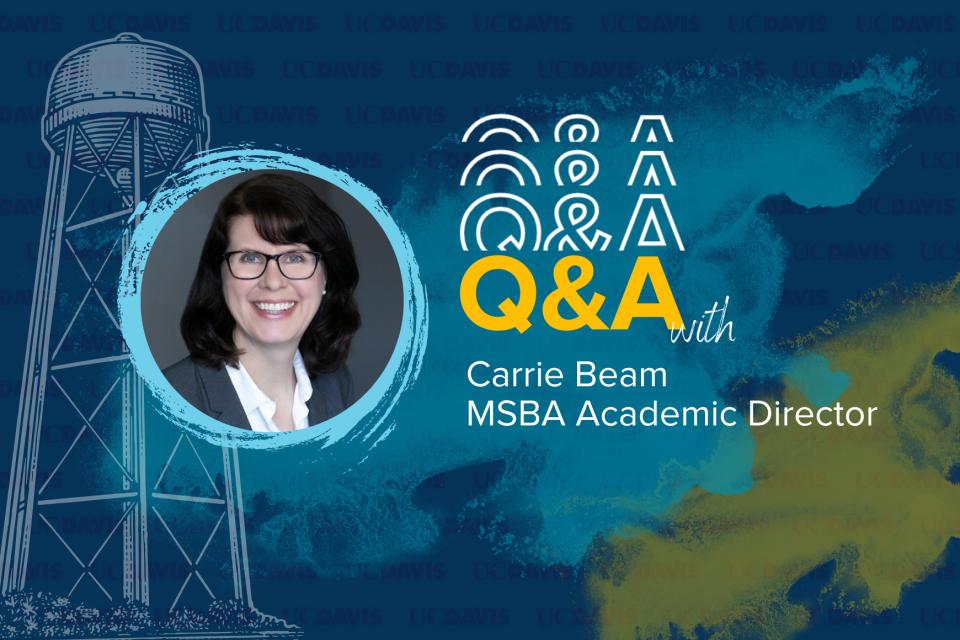
Dr. Carrie Beam, academic director of the UC Davis MSBA program, is at the nexus of where innovation meets real-world impact.
With a Ph.D. in operations research from UC Berkeley and over two decades of experience in analytics consulting, teaching and research, Beam has dedicated her career to preparing students for success in the rapidly evolving field of data analytics.
Under her leadership, the UC Davis MSBA program continues to earn global recognition as the No. 1 MSBA program worldwide for return on investment for several consecutive years and No. 2 globally for value for the money, according to rankings from Quacquarelli Symonds (QS).
We asked Beam what sets the UC Davis MSBA program apart, from the one-of-a-kind, year-long practicum projects for client companies and industry partnerships to teaching technical and interpersonal skills that employers demand. She also highlights the latest industry trends, the evolving needs of employers, and what she playfully refers to as the “chocolate cake demand.”
-
1. What sets the UC Davis MSBA program apart from other analytics programs, particularly in terms of practicum opportunities and industry partnerships?
Our graduates see immediate value based on their experience in the program. Top global rankings for return on investment reflect this.
But how did we get there? Real-world experience on real-world projects gives our students an edge in the marketplace.
All our students team up to collaborate on a capstone practicum project consulting for a client company or organization. They learn agile project management, work with leading technology such as Python and SQL, and develop real solutions to real problems. They improve their ability to work with others, put their technical skills in play and manage deadlines and communicate with business stakeholders.
For example, a recent project for the Mondavi Center for the Performing Arts merged natural language processing with numerical analysis to learn why patrons loved the shows but were less enthusiastic about the sound and the parking. The student team even enjoyed dinner and a show!
-
2. How does the program balance teaching technical analytics skills with developing softer skills, like communication and stakeholder management?
Practice, practice, practice! Technical skills are taught in individual classes, such as machine learning or SQL. But for softer skills, it’s learning by doing.
Each week every student joins their team in an agile “huddle,” a meeting in which every student is required to practice oral business communication. Students also work directly with their industry partners on a weekly basis, where they learn by doing—from managing changes of scope in the project to dealing with interpersonal conflicts and solving technical bugs.
Our practicum project with the California Department of Health Care Services helped ensure that millions of rows of healthcare data met regulatory requirements, giving DHCS a dataset with a 40% enhancement in reporting capability. Now DHCS can more easily see where certain procedures are most needed. For this project, students needed to work with a complex stakeholder team at a large governmental organization.
-
3. What are some of the biggest trends in data analytics and AI that prospective students should be aware of?
Of course, everybody’s very excited about AI right now—chatbots, OpenAI APIs, agent-based AI systems, and many more applications. We are too!
AI is very good at boosting the speed of a task which is already well-understood, such as coding.
However, in my opinion, the biggest trend remains a bit old-fashioned: making sure the analytics solution delivers business value, as defined by the end user. If the end user’s not happy, nobody is happy.
-
Image

“Chocolate cake demand” describes employers’ need for analytics professionals who blend technical expertise with interpersonal skills, ensuring they can solve problems, manage teams, and deliver real business value effectively. 4. What skills and other competencies are employers demanding in hiring for business analytics talent and how are we meeting that demand?
If solid technical skills are like dark chocolate, and good interpersonal and project management skills are like angel food cake, employers are demanding chocolate cake. And wanting more of it.
Employers demand a certain minimum level of programming ability, but also ask for the ability to interface well with business users and other team members. It’s not enough to be an excellent programmer if you don’t play well with others. It’s not helpful to write perfect API calls if you mismanage your time and overlook important details in business requirements.
How do we meet that “chocolate cake” demand? Again, practice, practice, practice.
UC Davis MSBA students take classes in machine learning, supply chain management, and AI systems which allow them to refine statistical and coding skills along the way. Project management is addressed explicitly—they have to make a Gantt chart as a homework assignment—and through hands-on experience.
Our practicum project with BroadVision Marketing merged technical skills of Python, web scraping, predictive modeling and Tableau with business communication skills and industry experience in marketing. The project? To reverse engineer the Google search algorithm. The result? Broadvision was able to uncover the right combination of images, calls to action and video links, so its pharmaceutical clients could rank highly on Google search. That’s chocolate-cake-delicious.
-
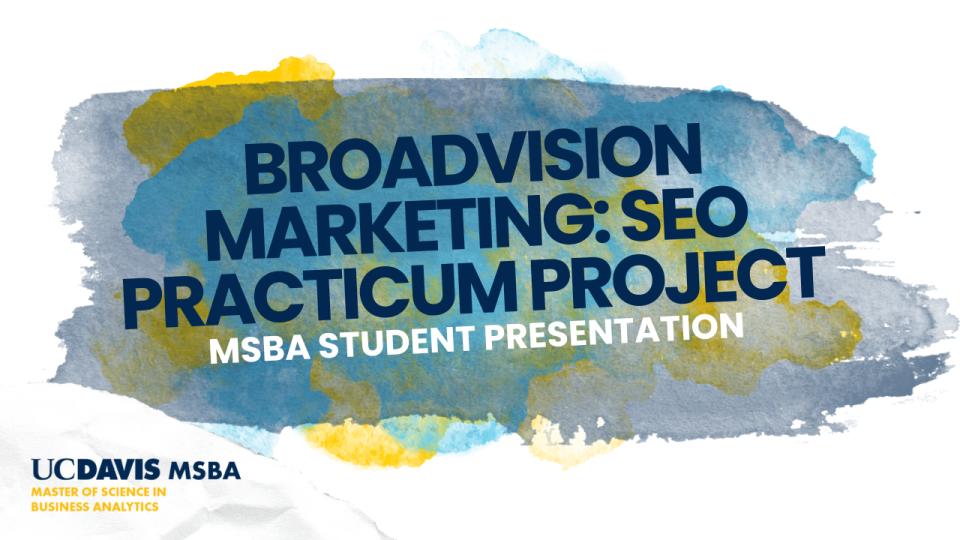
UC Davis MSBA students partnered with BroadVision Marketing to reverse engineer Google’s search algorithm, combining Python, predictive modeling, and Tableau skills to help pharmaceutical clients improve their search rankings. 5. How does the MSBA program equip students to stay ahead in a field that’s evolving so rapidly?
We constantly encourage our students to learn how to learn. Many of the future’s jobs haven’t even been invented yet. Our MSBA students learn to seek out videos, mentors, additional practice, LeetCode problems and Kaggle data sets.
We also offer the flexibility of stackable certificates and executive education, making our program both approachable and adaptable. Employees can address immediate needs with a certificate and return for more as they advance.
Did you know you can invite our world-class faculty to a “lunch-n-learn” at your company? We can also tailor continuing education to your organization.
For companies seeking business analytics expertise for employees, we combine top-tier faculty and industry expertise to deliver impactful programs with actionable insights, innovative formats, and lasting value for participants and their organizations.
-
6. Which industries or roles do you see growing the most demand for data analytics professionals?
Silicon Valley will always have an appetite for tech, and marketing has always benefited from excellent data.
Beyond that, we see a lot of data analytics growth in industries like accounting, real estate, healthcare and law. Anywhere there is a lot of text or a lot of numbers and somebody wants to make better decisions based on what’s written down. That’s when it’s time to call an analytics professional.
-
7. What advice would you give to students who are considering an MSBA, particularly those transitioning from non-technical backgrounds?
Come ready to learn! Plan that you may have to invest a little more time each week in upskilling, particularly if your background does not contain a high level of math or computer programming.
Come to UC Davis if you have a non-technical background and you want an MSBA degree with strong tutoring support, strong peer support and a faculty who welcomes your diverse background.
We teach Python from the ground up, assuming no prior knowledge, and offer additional support through extra office hours and small group tutoring for those who need it.
We are committed to the success of all our students, regardless of undergraduate major.
-
8. How does the UC Davis MSBA program support students in building professional networks and transitioning into the workforce after graduation?
Our students receive memberships to INFORMS, the largest professional association for the decision and data sciences, whose tagline is “Smarter decisions for a better world.” Through INFORMS, students interact with real-world professionals via webinars, email listserv, and in-person events in the Bay Area. There are multiple opportunities to grow their network beyond the university.
We teach students how to network by developing their communications skills, in addition to guiding them on which events to attend. We also show them how to transform small talk into productive professional connections.
For example, what happens if somebody at a networking event says, “So, tell me about yourself?” Usually there’s a standard two sentence standard response, something along the lines of “I am originally from [country] and worked for two years at [company] before returning to UC Davis for my MSBA degree.” And then the conversation can fizzle to an awkward halt.
We teach our students how to research the event or company ahead of time and prepare some good questions like:
- “What advice would you give me if I wanted to pivot into product management?”
- “I’ve heard time blocking is very important as a software engineer; what has been your experience with that?”
- “What is the one skill your team has a challenging time hiring for?”
The student can then follow up later with an emailed article about time blocking, or some information about the skill. This keeps the conversation going and allows better connections to emerge.
One of our practicum projects required integrating customer support software with the practicum partner’s inventory database. We connected the current student team with an alum who worked at the customer support software company. This not only brought the practicum project closer to success, but provided a hands-on learning experience while demonstrating the power of the UC Davis professional network
This is a perfect microcosm of the UC Davis MSBA program: curriculum, career, community and care—the four C's that make the program unique.
